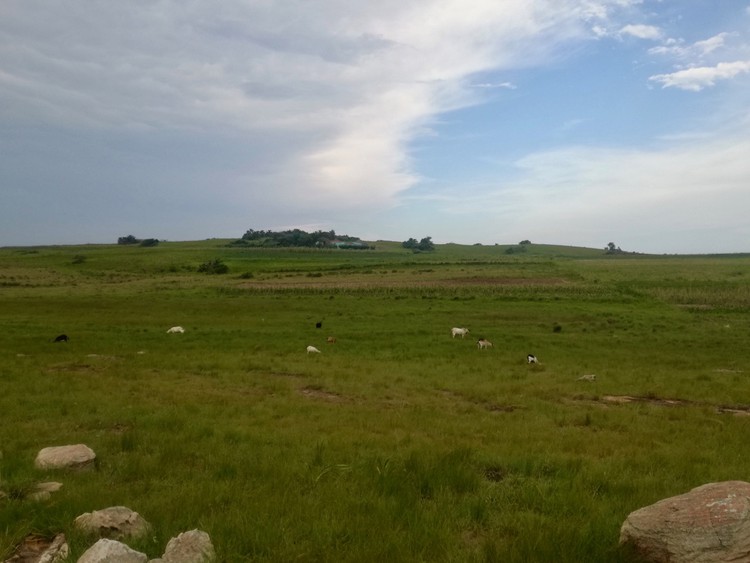
The community of Umgungundlovu in the Eastern Cape was not properly consulted about the building of the N2 toll road, the North Gauteng High Court was told on Tuesday. Archive photo: Thembela Ntongana
5 December 2018
The State’s consultation process with communities affected by the construction of the N2 Highway through the Wild Coast was “procedurally unfair”, the North Gauteng High Court was told on Tuesday.
This argument was made by Advocate Geoff Budlender, representing Sinegugu Zukulu, a resident of Umgungundlovu in the Eastern Cape. The South African National Roads Agency (SANRAL) and the Department of Environmental Affairs are respondents in the case.
In October last year, the North Gauteng High Court granted Zukulu the right to object to the authorisation of the highway by the Department. Zukulu is currently the only applicant in the case after the other four applicants, who represented other villages in the area, withdrew.
Zukulu is arguing that the road will pass through ancestral land, disrupting communities and gravesites, and that there had been no meaningful consultation with affected communities before the project was given the go ahead.
The Department of Environmental Affairs said that extensive consultation had taken place.
But in court on Tuesday, Budlender said the consultation process had been “procedurally unfair” because it did not provide the affected communities with enough information to make an informed decision.
He said in terms of the Promotion of Administrative Justice Act (PAJA) communities had to be given a reasonable opportunity to make representations on a proposed development.
He argued that the community in Umgungundlovu could not make an informed decision as they had not been told “how the road would affect their homes, fields and graves”. He said on this basis alone, the environmental authorisation for the project should be set aside.
In court on Monday, Advocate Chris Loxton representing SANRAL, had accused Zukulu of misrepresenting the communities in Umgungundlovu. He said Zukulu lived and worked in Cape Town and would not be affected by the developments in the area.
“This is an application by one man to achieve a result that is not shared by the community,” said Loxton.
But Zukulu told GroundUp that the other residents in the villages were still opposed to the construction of the road but had to withdraw from the case because the chiefs had “changed camps and were now in support of the road”.
“Actually coming [to court] I have done SANRAL a favour because I’ve helped them understand what is happening on the ground. When it’s time for people to move for the road, that’s when SANRAL will really see the wrath of the people,” said Zukulu.
Zukulu denied ever living or working in Cape Town and said Umgungundlovu was his home. “I was born there and I have a site there, I can even take you to my crops. I buy fertiliser and plough my fields there. I have chickens that I look after and someone has the audacity to say I don’t live there,” said Zukulu.
He said the case was not only about the livelihood of current and future generations. “It’s also about deep connection to the land. When we say ‘my umbilical cord is buried in the ground’, it means the connection to the ground is the connection to our ancestors. People still talk to the ancestors where they are buried and that should not be disturbed,” said Zukulu.
“Whether we lose or win, I’m happy that we have come this far… What has been crucial is to make sure that voices of the ordinary people have been heard,” he said.
Judgment is expected to be handed down in February.